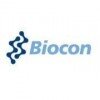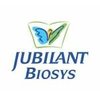Filter interviews by
Novozymes South Asia Process Engineer Interview Questions and Answers
Novozymes South Asia Process Engineer Interview Experiences
1 interview found
I applied via Recruitment Consulltant and was interviewed before Jul 2021. There were 2 interview rounds.

It was a 45 mins of discussion with hr & plant head ,was discussed about the project commissioning activities and was asked about the expectations
Interview Preparation Tips
Top trending discussions






Interview questions from similar companies

I applied via Naukri.com and was interviewed in Aug 2023. There was 1 interview round.
(3 Questions)
- Q1. Pump,Line,CV,PSV Sizing etc Distilltion in details Heat Exchanger Details
- Q2. How to design HE
- Ans.
Designing a heat exchanger involves considering factors such as heat transfer requirements, fluid properties, and equipment selection.
Determine the heat transfer requirements based on the desired temperature change and heat load.
Select the appropriate type of heat exchanger based on the application, such as shell and tube, plate, or finned tube.
Consider the fluid properties, including flow rate, viscosity, and thermal ...
- Q3. Pump Sizing and Calculation
Interview Preparation Tips

I applied via Naukri.com and was interviewed in Mar 2022. There were 4 interview rounds.
(5 Questions)
- Q1. What are your salary expectations?
- Q2. What is your family background?
- Q3. Where do you see yourself in 5 years?
- Q4. Why should we hire you?
- Q5. Tell me about yourself.
Interview Preparation Tips
- Skill Development

Technical questions regarding chemical engineering and equipment design.
(3 Questions)
- Q1. Design of Heat exchanger ?
- Ans.
Heat exchanger design involves selecting appropriate materials, determining heat transfer coefficients, and optimizing flow rates.
Select appropriate materials based on temperature, pressure, and fluid properties
Determine heat transfer coefficients for both fluids
Optimize flow rates to maximize heat transfer while minimizing pressure drop
Consider factors such as fouling, corrosion, and maintenance
Common types include sh...
- Q2. Tube pitch of shell and tube heat exchanger?
- Ans.
Tube pitch is the distance between the center of two adjacent tubes in a shell and tube heat exchanger.
Tube pitch affects the heat transfer rate and pressure drop in the heat exchanger.
It is typically between 1.25 and 2 times the outside diameter of the tubes.
A larger tube pitch can reduce fouling and make cleaning easier, but may require more tubes and increase the size of the heat exchanger.
The tube pitch should be o...
- Q3. Software knowledge like HTRI,Auto Cad,UNISIM,Pipenet
(2 Questions)
- Q1. Tell me About yourself?
- Q2. Why we recruit you , what is your strength?
Interview Preparation Tips

(2 Questions)
- Q1. What about your experience
- Q2. What about your profile
(2 Questions)
- Q1. What is scale-up
- Ans.
Scale-up is the process of increasing the production capacity of a system or process.
Scale-up involves transferring a process from a small scale to a larger scale.
Factors such as equipment size, operating conditions, and material properties need to be considered during scale-up.
Examples of scale-up include increasing the batch size of a chemical reaction or transitioning from a lab-scale production to a pilot plant or
- Q2. What is reaction kinetics
- Ans.
Reaction kinetics is the study of rates at which chemical reactions occur.
Reaction kinetics involves studying the factors that affect the speed of a chemical reaction.
It includes determining the reaction mechanism, rate laws, and reaction rates.
Examples of factors affecting reaction kinetics include temperature, concentration, and catalysts.
Interview Preparation Tips

I applied via Referral and was interviewed before Mar 2023. There were 2 interview rounds.
(3 Questions)
- Q1. Q) Introduce about yourself
- Q2. Q) Condensor area calculation and drying time..
- Ans.
Condenser area calculation is based on heat transfer requirements and drying time depends on factors like temperature, humidity, and airflow.
Calculate condenser area based on heat transfer requirements and desired cooling capacity
Consider factors like temperature, humidity, and airflow when determining drying time
Use formulas such as Q = U * A * deltaT for heat transfer calculations
Optimize condenser design to maximize
- Q3. Q) why do we use water as major part of utility.
- Ans.
Water is used as a major part of utility due to its abundance, versatility, cost-effectiveness, and environmentally friendly properties.
Abundance: Water is readily available in nature and can be easily sourced for various industrial processes.
Versatility: Water can be used for a wide range of applications such as cooling, cleaning, and as a solvent.
Cost-effectiveness: Water is relatively inexpensive compared to other u...
(1 Question)
- Q1. Why am I will to relocate.
Interview Preparation Tips

I applied via Referral and was interviewed before Aug 2022. There were 3 interview rounds.

(1 Question)
- Q1. Technical questions related to core engg. field.
(1 Question)
- Q1. Typical HR related questions such as past company experience, any issues with past employers, work environment & policies of the organization etc...
Interview Preparation Tips

(2 Questions)
- Q1. Production piping regarding
- Q2. Hydro and erection and commissioning.

I appeared for an interview in Mar 2025, where I was asked the following questions.
- Q1. About Family things and asked all
- Q2. About Technical Thing
- Q3. About previous Experience
- Q4. About joining date

Production Engineer Interview Questions & Answers
Bharat Biotech Internationalposted on 28 Jan 2023
(2 Questions)
- Q1. Basically introduction on my self and basic questions in our subject (biotechnology) 1.What is Electrophoresis 2. What is column chromatography 3. What is ultracentrifuges 4. Different techniques relate...
- Q2. What is the electrophoresis What is the chromatography
- Ans.
Electrophoresis is a technique used to separate charged molecules based on their size and charge. Chromatography is a technique used to separate components of a mixture based on their affinity to a stationary phase.
Electrophoresis involves applying an electric field to a gel or solution containing charged molecules, causing them to migrate towards the opposite charge electrode.
Chromatography involves passing a mixture ...
Interview Preparation Tips
Novozymes South Asia Interview FAQs
Tell us how to improve this page.
Novozymes South Asia Interviews By Designations
- Novozymes South Asia Accountant Interview Questions
- Novozymes South Asia Process Engineer Interview Questions
- Novozymes South Asia Customer Support Associate Interview Questions
- Novozymes South Asia Supply Chain Executive Interview Questions
- Novozymes South Asia Executive Interview Questions
- Novozymes South Asia Manufacturing Executive Interview Questions
- Novozymes South Asia Senior Accountant Interview Questions
- Novozymes South Asia Research Intern Interview Questions
- Show more
Interview Questions for Popular Designations
- Process Engineer Trainee Interview Questions
- Process Associate Interview Questions
- Chemical Process Engineer Interview Questions
- Junior Process Engineer Interview Questions
- Processing Executive Interview Questions
- Process Developer Interview Questions
- Assistant Manager Process Engineering Interview Questions
- Process Quality Engineer Interview Questions
- Show more
Interview Questions from Similar Companies
Novozymes South Asia Process Engineer Reviews and Ratings
based on 1 review
Rating in categories
|
Research Associate
51
salaries
| ₹4 L/yr - ₹9.5 L/yr |
|
Accountant
35
salaries
| ₹3.9 L/yr - ₹10 L/yr |
|
Junior Executive
34
salaries
| ₹2.5 L/yr - ₹6.2 L/yr |
|
Senior Accountant
27
salaries
| ₹6.3 L/yr - ₹13.8 L/yr |
|
Senior Research Associate
21
salaries
| ₹7.5 L/yr - ₹15 L/yr |

Biocon Limited

Thermo Fisher Scientific

Biocon Biologics

Panacea Biotec
- Home >
- Interviews >
- Novozymes South Asia Interview Questions >
- Novozymes South Asia Process Engineer Interview Questions










